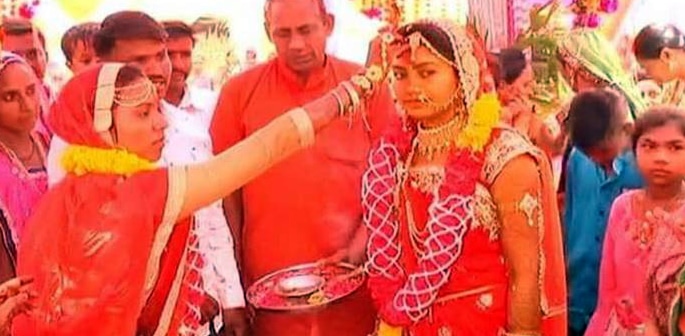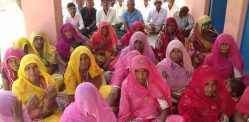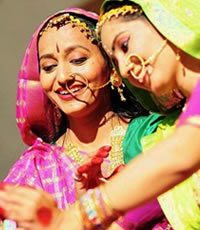"All the rituals that a groom traditionally does is conducted by his sister."
The marriage between a bride and the groom’s sister is a tradition that is followed by communities in the villages of Surkheda, Sanada and Ambal in Gujarat.
It is a tradition where a marriage takes place without the groom’s physical presence.
Instead, the groom’s unmarried sister or any unmarried woman from his family represents him in the ceremonies as the groom. It has been reported that it is a practice which has been followed for hundreds of years.
The tradition may sound strange but it is followed by every family in order to protect the groom from any harm.
According to folklore, the male deities of the three villages were bachelors, therefore the villagers keep the groom at home in order to show respect towards them.
As a result, the groom’s sister leads the wedding procession and marries the bride before taking her home.
Meanwhile, the groom is not allowed to attend the wedding. He dresses up in a sherwani, wears a safa on his head and carries a traditional sword but is required to stay at home with his mother.
Kanjibhai Rathwa, a local resident of Sukheda said:
“All the rituals that a groom traditionally does is conducted by his sister. She takes the ‘mangal phere’ with the bride instead of her brother.”
While this tradition is mostly followed by the villagers, some people attempt to avoid following the custom.
Ramsingbhai Rathwa is the village head in Surkedha and stated that whenever people avoid the tradition, they become victims of unfortunate events.
He said:
“This practice is followed in three villages. It is believed that if we don’t follow this custom then some harm will befall.”
“A couple of times some people have tried not to follow the tradition, either they ended up with broken marriages or other types of problems arose.”
People have said that this unique tradition reflects the tribal culture within the three villages and it is part of their folklore.
India has many different sub-cultures such as this one which contributes to the rich fabric of variety and different ways of living in the country.
Many in the cities feel that the progress of India is inhibited by villages holding onto such traditions.
However, for such a vast country with individual customs, such a change is not going to be easy where culture is defined by such beliefs.





























































